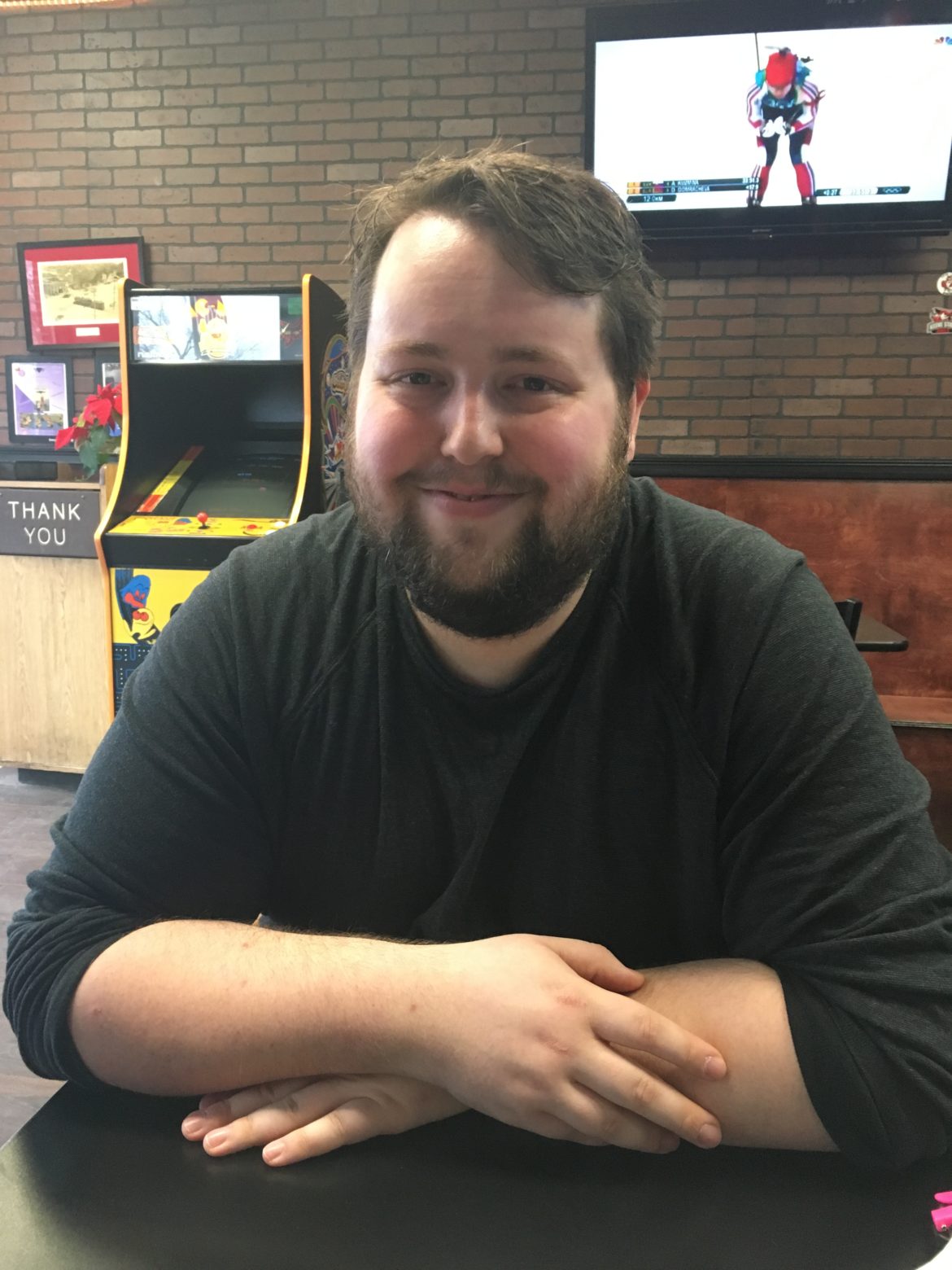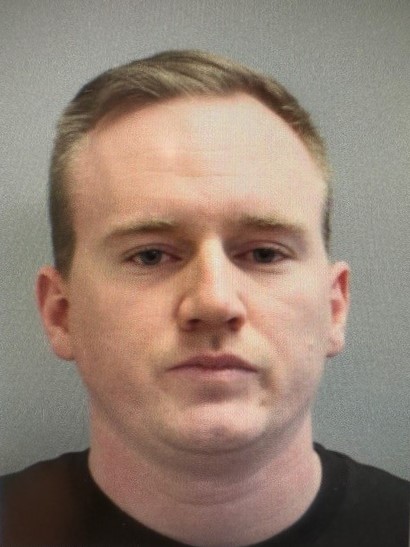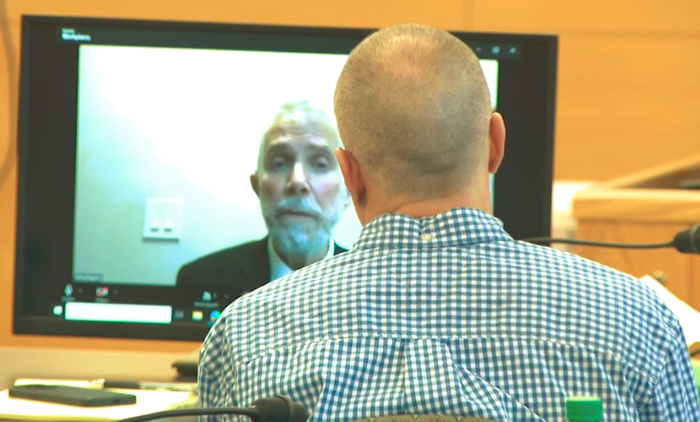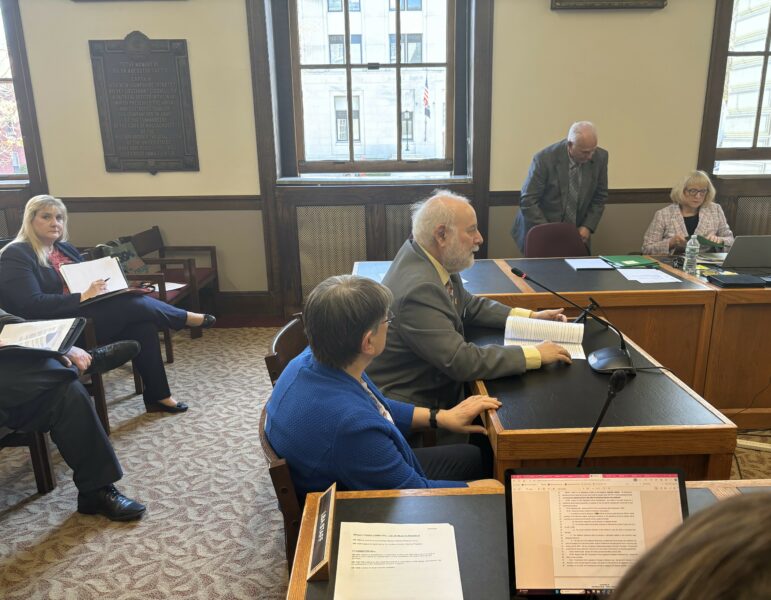Sam Whitaker is a senior at Keene State College and an intern at InDepthNH.org. The Gay Agenda is co-published by Manchester Ink Link and InDepthNH.org.
By SAM WHITAKER, The Gay Agenda
In a previous article I spoke about television series that I enjoyed, and the importance of having queer characters in them. Something similar, and perhaps much more dear to me, are video games.
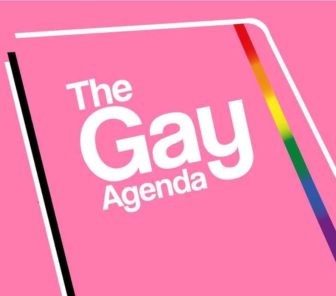 Since I was a young boy, my family has been comprised of video gamers. I remember my father showing us his old grey Gameboy, a big rectangle of plastic but within the confines of that small screen was something else entirely. My older brother and I played Mario and Pokémon throughout childhood, and do so even now. My younger brother became just as avid a gamer as us, and our sister enjoyed picking up the controller from time to time.
Since I was a young boy, my family has been comprised of video gamers. I remember my father showing us his old grey Gameboy, a big rectangle of plastic but within the confines of that small screen was something else entirely. My older brother and I played Mario and Pokémon throughout childhood, and do so even now. My younger brother became just as avid a gamer as us, and our sister enjoyed picking up the controller from time to time.
As we grew up, we bore witness to so many different stories and quests in video games that helped form our ideals of morality and humanity. We saved the world (and other worlds) countless times, and honed skills in swordcraft, magic, and even extreme flatulence (Wario of course). I noticed that, like with television, there was a severe lack of characters that I could identify with in video games.
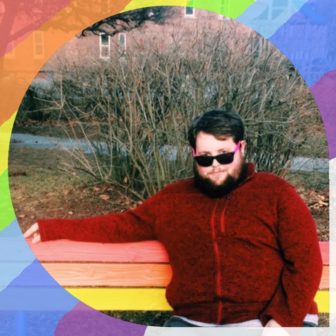
Sam Whitaker
Characters in my favorite game of all time, The Elder Scrolls: Oblivion, were sometimes married to other NPC’s (non-player characters). Some quests were even based around marital problems. Other games seem strictly built around the idea that the heroism is motivated by heterosexual desires. Mario as a protagonist is usually motivated to do all the things he does (jump on lethal mushroom people, leap over dangerous gaps, and avoid fireballs, animate cacti, and so on) to save Princess Peach. And though it may never have been actually confirmed that they are a couple, it does seem to be what the games imply.
This is a recurring theme, too. Despite a great deal of games having what people might assume are obvious couples (Zelda and Link, Master Chief and Cortana, Gordon and Alyx), the game and the game creators often don’t specify that they are actually a couple. Mostly, people gather these beliefs through implied relationships and connections. No one can really understand how Master Chief, a cybernetic super-soldier could actually be close or intimate with a sophisticated hologram artificial intelligence.
Yet, generally fans don’t have a hard time eating up that particular relationship. In other games, we see see cross-species romance, such as humans with literal aliens. For instance, in the Bioware series, Mass Effect, the Asari are a species that all have a stereotypical and perhaps societally accepted notion of feminine beauty. There are no male Asari, and they can reproduce with nearly any other species in the games universe, although their offspring will only ever be another Asari. Despite the Asari being compatible with the main character (whether they are a male or female player character) there is no opposite or reversed case in Mass Effect. There is no “all male” species that can mate with any other species. Instead, there is only the Asari.
What all of these examples do is create certain understandings and expectations of in-game relationships. Heterosexual relationships are ubiquitous, but male heterosexual characters are given preference. Female heterosexual characters will not have entire species of male aliens to mate with and honestly, function as eye candy. After that, homosexual and pretty much any other sexuality is given next to no representation and oftentimes even the representation they do receive is limited or problematic in some regard. In the Sims games, they had the ability for same-sex couples to form for pretty much the entire lifespan of the series. However, the marriages were labeled as things such as “unions” which may have reflected the political climate of the time they were made, but it is definitely yet another way that same-sex relationships were invalidated.
Alternatively, some games have migrated to systems where characters that can be “romanced” will often be compatible with the player character no matter their identity. This creates what some gamers call “playersexual” romance options. The idea behind the name is that because the NPC’s are always able to romance the player character, they aren’t homo- or bisexual. They are just… playersexual. Which is actually an awkward way of designing characters when one thinks about it. Often times sexuality has a significant impact on the way one grows up, and can lead to entirely different issues from those who do not have those marginalized sexualities.
Creating characters that are just flat in regards to character development surrounding their orientation is frustrating. Even in games with a hyperfuturistic setting, queer gamers (or gaymers!) want to identify with a supposedly queer NPC. Essentially, it is not enough for the characters to just be compatible. That isn’t fulfilling nor is it compelling characterization. And I’m not necessarily demanding that every queer character have a difficult life filled with woe and discrimination. All I’m suggesting is that as a gay gamer, I reject the idea that we’re at a point where we can create characters who don’t want to talk or make some noise about their sexuality. I’ve sat through nearly twenty years of gaming without decent queer video game representation in triple A games (the big blockbuster games, like Call of Duty or Halo).
There are good queer characters, I should say. Dorian from Dragon Age: Inquisition was great. Ellie from The Last of Us is an inspiring character for queer gamers and female gamers as well. Yet, the few don’t quite make up for the ridiculously large gap between representation of straight relationships and characters and between queer. This is something that is quite important to me, and though I will continue to play video games, I just hope that one day queer romance will be more readily accepted in triple A mainstream games and not just in fringe games.
Sam Whitaker is a senior at Keene State College. Sam is double majoring in English Writing and Literature, with Medieval Studies as a minor. He works as a Resident Assistant and is the president of KSC Pride, an LGBTQ+ student organization on campus. When he isn’t writing, Sam’s probably playing a video game or catching up on some sleep.
